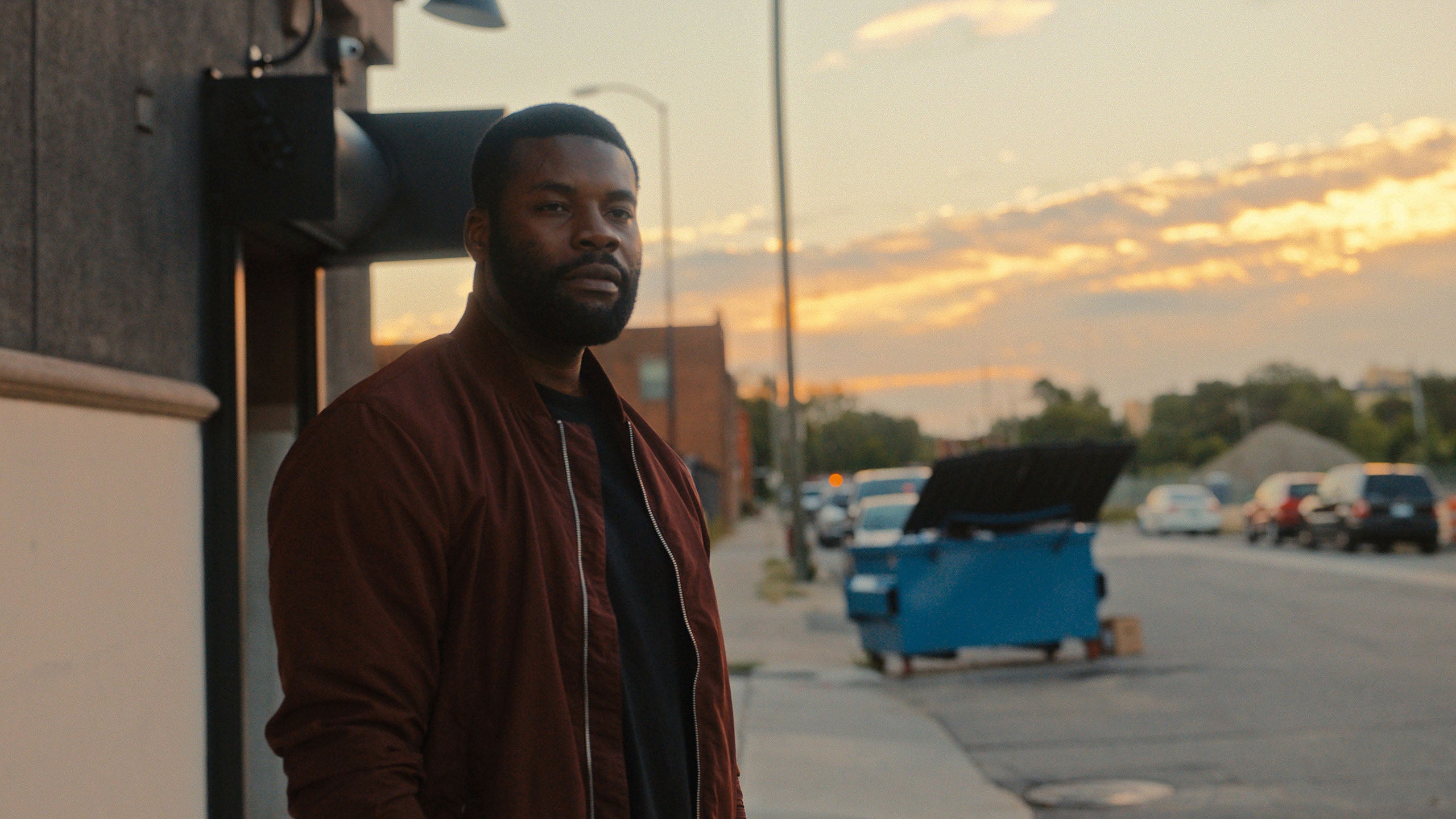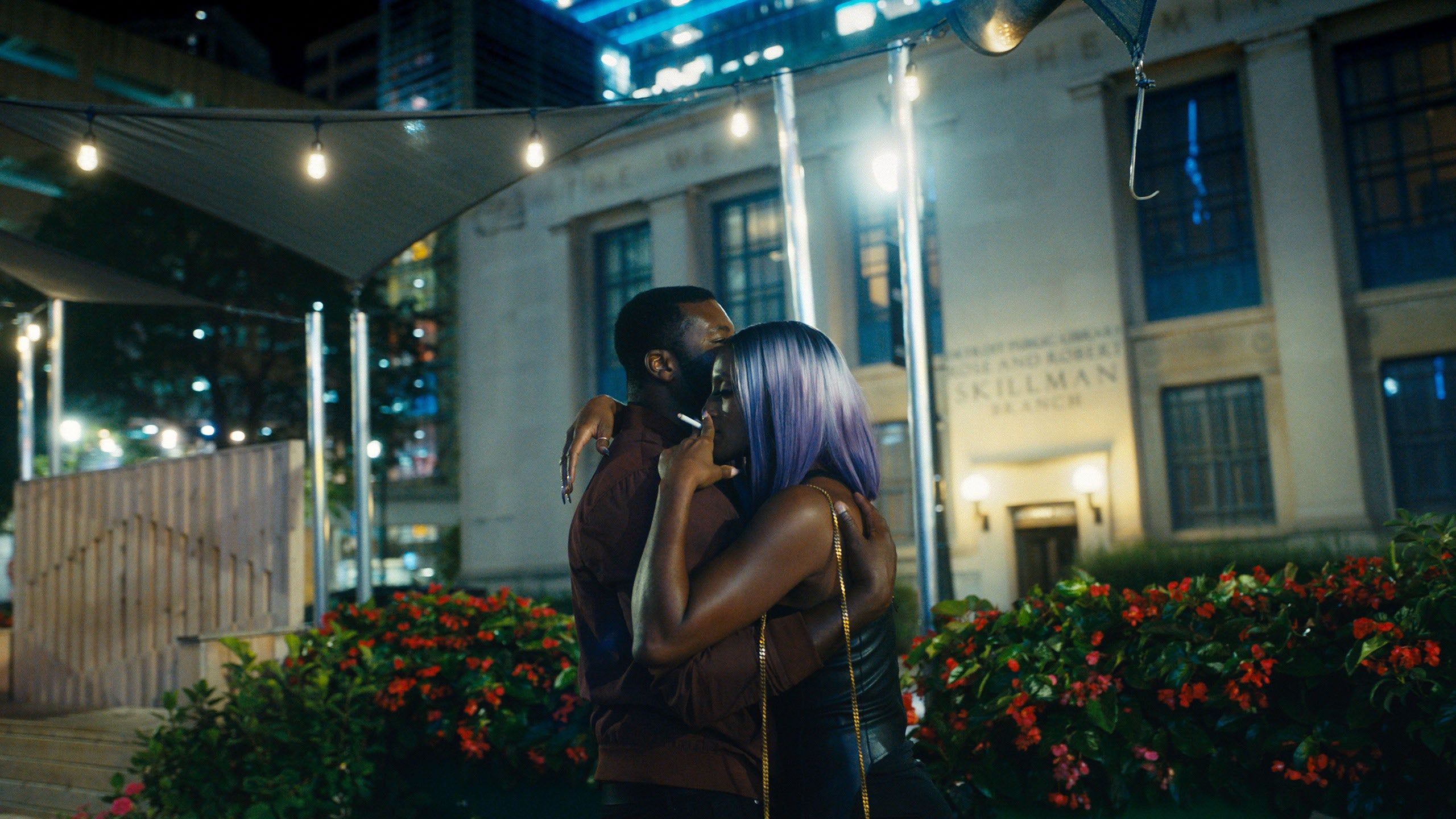
While watching director Qasim Basir’s latest project, To Live and Die and Live, at Sundance Film Festival there were moments where I, like the audience around me, wished that we could watch this away from the dark theater filled with strangers and in the company of our loved ones. That way, we’d be free to openly express our thoughts about — or shout at — the protagonist, Muhammed (Amin Joseph), and encourage him to make better decisions. Whether it’s to beg him to put down the bottle of liquor he’s drinking from, to not get in a car and drive after he’s consumed said bottle of liquor, or to follow his stepsister Lisa (Dana Gourrier) into the mosque where he’s instructed her to deliver a payment to the imam for the funeral of their father (figure), the audience has things to say.

The loss of Muhammed’s stepfather is the backdrop for his return to his native home of Detroit, which is captured in all its glories and frustrations by Basir. Shots of the manifestations of the city’s revival are paired against histories and retellings of its significance as a documented American dwelling of yesteryear. Muhammad, a filmmaker, struggling with addiction, is burdened not only with the familial loss, but also with a stifling masculinity in which he cannot express the full depth of his emotions, always assuming the responsibility for his family’s well-being, particularly financially.
Despite the despair that Muhammed faces, he has a whirlwind romance with a woman Asia (Skye P. Marshall), the latter of whom represents loss in her own way, and who challenges Muhammad’s understanding of death, life, and living altogether. Asia represents an ephemeral love for Muhammad in contrast to the love that he is mourning, his stepfather, a lasting love not only for him but the rest of his family.

Though there are many meaningful and evocative scenes within the overarching story of To Live and Die and Live, in its totality, there are periods within the film that feel disjointed as a cohesive work. One example is when Muhammad is meeting with film students to discuss his work and, given his drunken episode, advises them not to enter the film industry, citing the ways in which it might indeed lead to disillusionment. It’s a troubling scene that demonstrates that even the thing that is supposed to bring Muhammad joy, the thing that made him leave Detroit, the thing that makes him a “big man” in the eyes of his community, comes with so much pain. It’s a good scene and yet it seems displaced from the progression of the film, and in this way, it’s not exactly singular of Basir’s otherwise thoughtful film.
Connecting loss to love, strangers to family, success to distress, To Live and Die and Live is making a statement on the power of redemption and finding a way to both survive when you have to and thrive when you can. So even when there are parts of the film that seem perfect for the meaning of the film, though not within its unfolding as a piece of art, as a whole, the project is greater than the sum of its parts.
